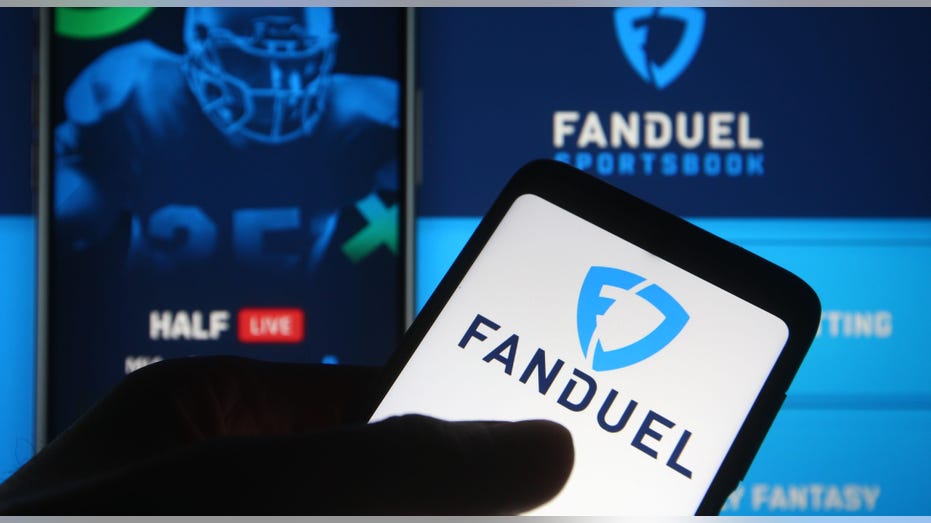The Craziest Convention in American History: Part Two
Our Story So Far: A century ago, this week, the wildest, weirdest, and wackiest convention in American history opened at New York’s Madison Square Garden. For 103 ballots, lasting more than two weeks, the delegates wrangled over a nominee pitting strait-laced former Treasury Secretary William Gibbs McAdoo against New York Governor Al Smith, America’s first great urban politician. In reality, this was a battle for the future of the Democratic Party. The crucial moment came Saturday night, June 30, as the delegates battled over whether to denounce the resurgent Ku Klux Klan by name. This is the second of two parts. You can read the first installment here.June 28 (continued): Conventions have rhythms of their own—and much of the Saturday sessions was devoted to the tedium of reading the entire platform aloud. The debate over the Klan plank didn’t begin until 8:45 in the evening with a phalanx of New York cops positioned on the convention floor to guard against debris being thrown from the balconies in protest. The rhetoric, roughly alternating from side to side, was predictable until a little-known delegate, Andrew Erwin, a former mayor Athens, Georgia, with impeccable Confederate roots, rose to speak. Anticipating another Southern apologist for the Klan, the pro-Smith galleries erupted in catcalls and Bronx cheers. But in a passionate three-minute speech that brought down the convention, Ervin begged the delegates to denounce the Klan arguing that if the South could not rid itself of the stench of the KKK on its own, they needed the help of the rest of the nation. Thirty separate state placards marched around the Georgia delegation in support of Ervin, but within the state contingent, only a lone woman Democrat, Marion Colley, rose to congratulate him on his speech. The convention band—in one of those unfathomable decisions that happen in the heat of political combat—decided on its own to serenade the delegates with two choruses of the derisive Civil War song, “Marching Through Georgia.”The debate on the Klan plank ended with an exhausted William Jennings Bryan, who had been averaging three hours sleep a night, making one last appeal to the delegates to avoid a direct attack on the Invisible Empire. Twenty-eight years after Bryan had electrified the 1896 convention with a speech that won him the nomination, the Great Commoner had lost his magic. The Baltimore Sun succinctly reported that the delegates had cheered Bryan for 12 minutes, “but that was before he began to speak. He had no cross of gold or crown of thorns to conjure with this time.” As Bryan lost his audience amid a torrent of boos, his words, constantly invoking Jesus, spoke more to his religious fundamentalism than the issue before the convention. As a Sun reporter smartly put it (in words that are relevant to today’s Republican Party), “For the first time in nearly two generations that bitterest and most dreaded of all issues—the religious issue—has reared its ugly head at a national convention.”Counting votes in the middle of the night at a contested convention is dicey enough in the best of circumstances—and with the delegates at each other’s throats, these were far from ideal conditions. Complicating everything was that some states operated under the Unit Rule by which a majority of a delegation could deliver all of a state’s votes. Also, it was legal to request that a state be polled, which required every delegate to assert in a voice vote his or her choice. The balloting on the Klan plank began at 11:35 on Saturday night. And, as Robert K. Murray described in his book, The 103rd Ballot, “Never before had there been such prolonged pandemonium in an American political gathering. The delegates engaged in fist fights, arguments, name calling, wrestling matches, and brawls, while the galleries howled and stomped their feet.” Finally, the announced tally was 541 3/20 votes for omitting mention of the Klan and 540 3/20 for repudiating the KKK. But, in truth, no one ever knew what the actual results were. The convention adjourned with individual delegates screaming for recognition to change their votes and others demanding that their state be polled. If there was a swing vote, it was Marion Colley from Georgia, who despite congratulating Erwin on his anti-Klan speech, voted the other way. The granddaughter of a Confederate general, Colley was thought to have been unable to resist the pressure from the McAdoo forces within the delegation. June 30: After a merciful Sunday recess, the convention (only the fourth in history to go into a second week) finally get to its real job on Monday morning—nominating a presidential candidate. The results of the first ballot were desultory as McAdoo fell far way short of a majority with 434 1/2 votes while Smith mustered 241. None of the favorite son candidates received even 60 votes. With uncharacteristic efficiency, the Democrats raced through 15 ballots before adjourning late Monday night. There were a few brief

Our Story So Far: A century ago, this week, the wildest, weirdest, and wackiest convention in American history opened at New York’s Madison Square Garden. For 103 ballots, lasting more than two weeks, the delegates wrangled over a nominee pitting strait-laced former Treasury Secretary William Gibbs McAdoo against New York Governor Al Smith, America’s first great urban politician. In reality, this was a battle for the future of the Democratic Party. The crucial moment came Saturday night, June 30, as the delegates battled over whether to denounce the resurgent Ku Klux Klan by name. This is the second of two parts. You can read the first installment here.
June 28 (continued): Conventions have rhythms of their own—and much of the Saturday sessions was devoted to the tedium of reading the entire platform aloud. The debate over the Klan plank didn’t begin until 8:45 in the evening with a phalanx of New York cops positioned on the convention floor to guard against debris being thrown from the balconies in protest. The rhetoric, roughly alternating from side to side, was predictable until a little-known delegate, Andrew Erwin, a former mayor Athens, Georgia, with impeccable Confederate roots, rose to speak.
Anticipating another Southern apologist for the Klan, the pro-Smith galleries erupted in catcalls and Bronx cheers. But in a passionate three-minute speech that brought down the convention, Ervin begged the delegates to denounce the Klan arguing that if the South could not rid itself of the stench of the KKK on its own, they needed the help of the rest of the nation. Thirty separate state placards marched around the Georgia delegation in support of Ervin, but within the state contingent, only a lone woman Democrat, Marion Colley, rose to congratulate him on his speech. The convention band—in one of those unfathomable decisions that happen in the heat of political combat—decided on its own to serenade the delegates with two choruses of the derisive Civil War song, “Marching Through Georgia.”
The debate on the Klan plank ended with an exhausted William Jennings Bryan, who had been averaging three hours sleep a night, making one last appeal to the delegates to avoid a direct attack on the Invisible Empire. Twenty-eight years after Bryan had electrified the 1896 convention with a speech that won him the nomination, the Great Commoner had lost his magic. The Baltimore Sun succinctly reported that the delegates had cheered Bryan for 12 minutes, “but that was before he began to speak. He had no cross of gold or crown of thorns to conjure with this time.” As Bryan lost his audience amid a torrent of boos, his words, constantly invoking Jesus, spoke more to his religious fundamentalism than the issue before the convention. As a Sun reporter smartly put it (in words that are relevant to today’s Republican Party), “For the first time in nearly two generations that bitterest and most dreaded of all issues—the religious issue—has reared its ugly head at a national convention.”
Counting votes in the middle of the night at a contested convention is dicey enough in the best of circumstances—and with the delegates at each other’s throats, these were far from ideal conditions. Complicating everything was that some states operated under the Unit Rule by which a majority of a delegation could deliver all of a state’s votes. Also, it was legal to request that a state be polled, which required every delegate to assert in a voice vote his or her choice. The balloting on the Klan plank began at 11:35 on Saturday night. And, as Robert K. Murray described in his book, The 103rd Ballot, “Never before had there been such prolonged pandemonium in an American political gathering. The delegates engaged in fist fights, arguments, name calling, wrestling matches, and brawls, while the galleries howled and stomped their feet.”
Finally, the announced tally was 541 3/20 votes for omitting mention of the Klan and 540 3/20 for repudiating the KKK. But, in truth, no one ever knew what the actual results were. The convention adjourned with individual delegates screaming for recognition to change their votes and others demanding that their state be polled. If there was a swing vote, it was Marion Colley from Georgia, who despite congratulating Erwin on his anti-Klan speech, voted the other way. The granddaughter of a Confederate general, Colley was thought to have been unable to resist the pressure from the McAdoo forces within the delegation.
June 30: After a merciful Sunday recess, the convention (only the fourth in history to go into a second week) finally get to its real job on Monday morning—nominating a presidential candidate. The results of the first ballot were desultory as McAdoo fell far way short of a majority with 434 1/2 votes while Smith mustered 241. None of the favorite son candidates received even 60 votes. With uncharacteristic efficiency, the Democrats raced through 15 ballots before adjourning late Monday night. There were a few brief boomlets for favorite sons, but they were temporary eddies in a suddenly placid sea. Mencken captured the mood of the mood of the delegates as he wrote, “Strange rumors affright and paralyze them. They want to do something, and yet they don’t know what to do. Meanwhile, their hotel bills keep mounting prodigiously and all day and all night they are bombarded with disquieting news from home—that the cow is sick, that the note at the bank is due Tuesday.”
July 1: Another 15 ballots with no resolution, but with an increasing sense of gloom in the McAdoo camp. The Daily News declared (using an image out of keeping with the steamy summer weather), “That McAdoo is now on the toboggan slide downward to political oblivion is the general opinion among all but his campaign managers.” What changed the equation by the thirtieth ballot was John W. Davis moving up to 125 votes, mostly at the expense of McAdoo. The indefatigable Bryan rightly and righteously denounced Davis as “J.P. Morgan’s lawyer,” but anti-Wall Street populism was waning amid the Democrats. In a modern touch, the New York Times reported the betting odds from Wall Street with Davis now the favorite at 2 1/2 to one, Smith appealing to plungers at 3 to one, while McAdoo faded to 7-to-one odds.
July 3: At this point, the smart betting money would have been on total stalemate. The Democrats, through a mixture of stubbornness and incompetence, set an American political record by having cast 61 ballots by the end of the evening session—beating the prior record of 57 in 1860—with no respite in sight. The core problem: McAdoo refused to accept that he could not win, so he refused to release his delegates. Smith, a more pragmatic politician, would have been willing to deal if he had someone to negotiate with.
July 4: As the Democrats spent the 148th anniversary of the Declaration of Independence writing their own declaration of futility, the morning papers were filled with stories of a reported bribe. Supposedly, a Massachusetts delegate from Brookline had been offered $500 to switch his vote from Smith to McAdoo—and $5,000 if he could bring others with him. What made the story problematic was that, at this stage of the self-destructive marathon, it was hard to believe that anyone would care enough to venture $500.
As the Davis gambit faded, attention centered on another favorite son, Indiana Senator Samuel Ralston, a former governor. There was just one obstacle: Ralston (who was in failing health and was to die in 1925) had been secretly sending telegrams to the Indiana party boss, Tom Taggart, insisting that he would not accept a nomination. Finally, unable to further resist, the ambitious Taggart read Ralston’s withdrawal statement to the convention.
July 8: The Daily News reported that Eleanor Roosevelt “like [an] old-fashioned wife who knitted and waited for [her] truant husband to come home” brought her needles with her to every session of the convention.
July 9: Yes, they were still at it. As Mencken put it, “What was chiefly visible at 4 o’clock this morning, when the convention swooned wearily into adjournment, was the complete collapse of all leadership, and with it all common sense.” In the wee hours of the morning, McAdoo finally released his delegates. Earlier Franklin Roosevelt, speaking for the Smith forces, announced that the New York governor would withdraw if McAdoo would do likewise. But the 100th ballot, the last one before the 4:00 adjournment, was still inclusive as Smith led with 351 1/2 votes, Davis had surged 203 1/2 and McAdoo still hung in there with 190.
It wasn’t until the afternoon session that the punch-drunk delegates bowed to the inevitable, nominating the non-controversial Davis on the 103rd ballot. After the final conclusive ballot, Davis spoke for virtually every Democrat when he said, “Well, I’m glad it’s over.” In a gesture of party unity, Charles Bryan was named Davis’s running mate.
Epilogue: The Davis-Bryan ticket was trounced by Coolidge, winning just 29 percent of the popular vote and not carrying a single state outside the segregationist South. In a transformation of the Democratic Party, Al Smith was the 1928 nominee, even though his campaign was upended by anti-Catholic bigotry. William Jennings Bryan died in 1925, just five days after battling evolution in the Scopes Trial in Tennessee. McAdoo later served as senator from California.
As for Davis, he thrived as a corporate lawyer making 140 appearances before the Supreme Court. In his last Supreme Court case in 1954, Davis represented South Carolina in opposing Brown v. The Board of Education. Committed to the cause, Davis refused to accept a fee for arguing on behalf of segregation for South Carolina. His only compensation was a silver tea service awarded him by the state legislature.



